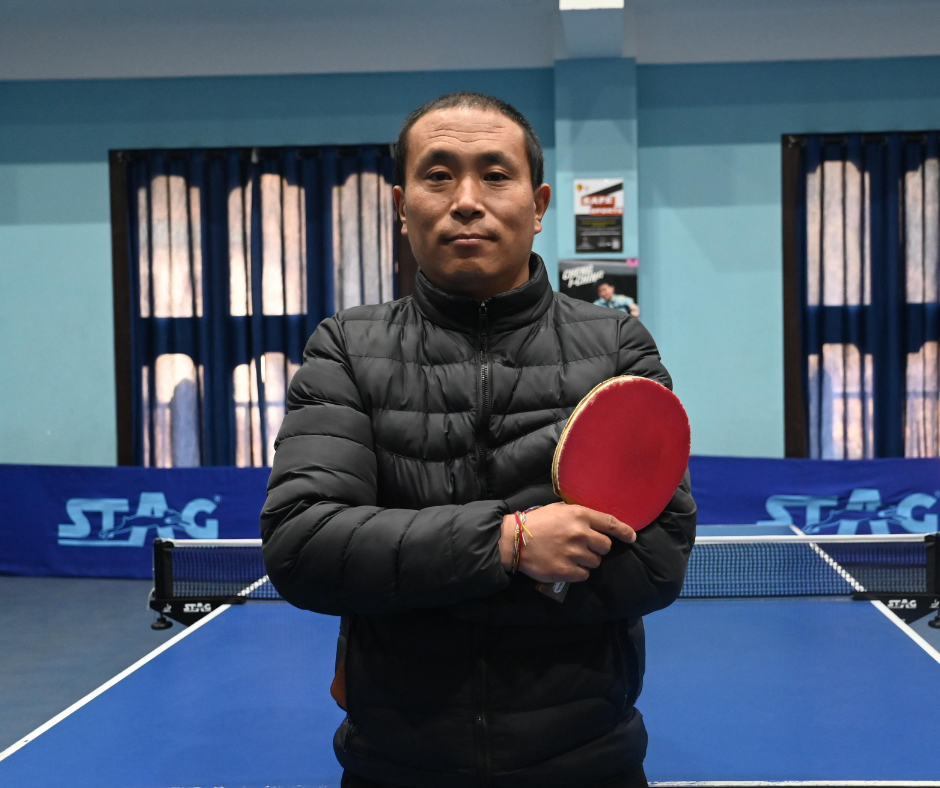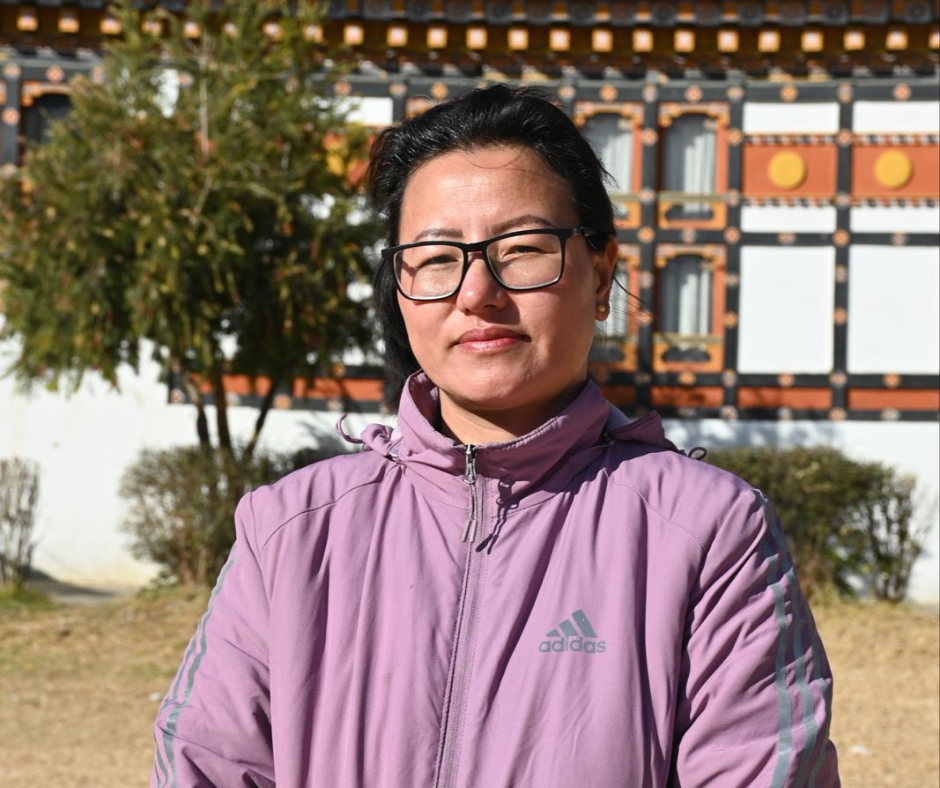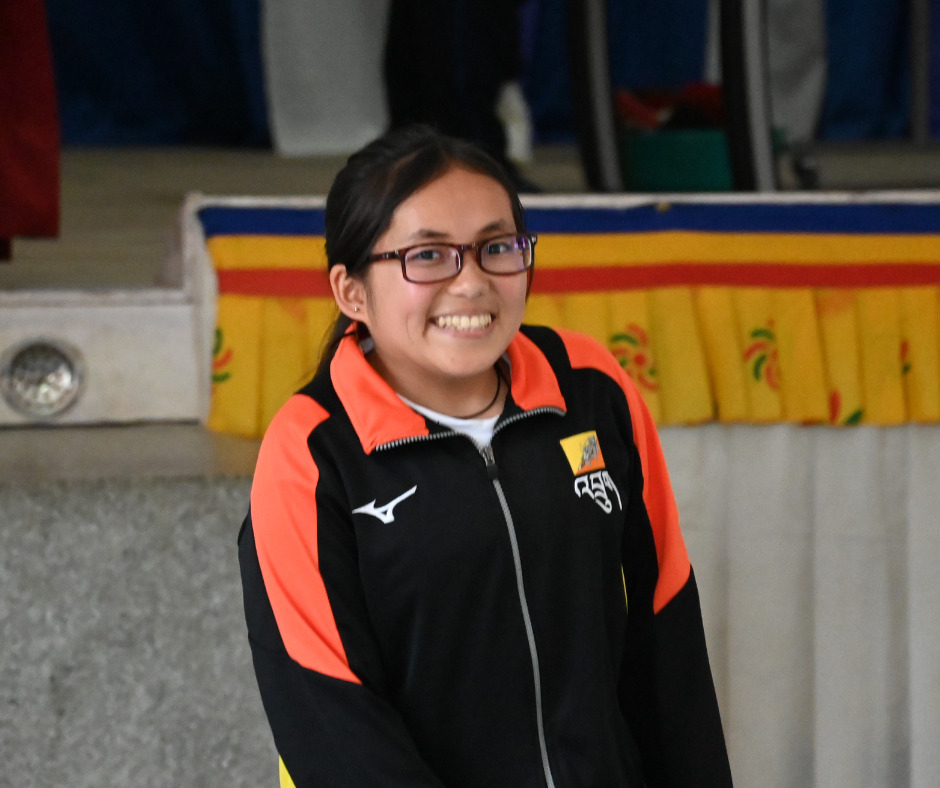Coach Dala Thinley
Transformative Power of Para-Sports
From the perspective of the sport you coach, what role do sports play in the lives of individuals with disabilities?
Sports play a powerful and transformative role in the lives of persons with disabilities. Beyond physical activity, sports offer a platform for personal growth, independence, and self-expression. They help develop motor skills and promote physical health, but perhaps more importantly, sports instill confidence, build resilience, and create meaningful opportunities for social interaction. Through sport, individuals with disabilities often feel more empowered, capable, and connected to their communities.

What are the key benefits of sports for individuals with disabilities? How does participation impact their mental and physical well-being?
The benefits are many, both physically and emotionally.
- Physically, sports improve coordination, balance, and muscle strength. They contribute to cardiovascular health and help prevent secondary health issues, which can arise due to inactivity.
- Mentally and emotionally, participation in sports enhances self-confidence, fosters resilience, and reduces symptoms of anxiety and depression. It sharpens focus, encourages discipline, and supports goal-setting—skills that extend well beyond the playing field.
Engaging in sports allows individuals to lead healthier lives while also nurturing a positive outlook and a strong sense of accomplishment.
What kinds of opportunities and career paths are available in para-sports, both in Bhutan and internationally?
In Bhutan, individuals with disabilities can participate in national para-sports competitions and may be eligible for scholarships or financial support through agencies like the Bhutan Olympic Committee (BOC).
Internationally, the scope is even broader. Athletes can represent Bhutan at prestigious events such as the Asian Para Games and the Paralympic Games. Career pathways are expanding, with opportunities not just as athletes, but also as coaches, referees, and technical officials within their national and international federations.
With growing global recognition of para-sports, these fields are opening up exciting professional and competitive avenues.
How can individuals with disabilities get started in a para-sport they’re interested in?
Getting started is easier than many think. Individuals can begin by:
- Reaching out to national para-sports committees or local sports federations
- Joining inclusive community clubs or rehabilitation centers that offer adaptive sports programs
- Participating in talent identification camps or inclusive sports festivals
- Connecting with experienced coaches or associations for guidance, assessment, and classification
The first step is simply expressing interest—there are people ready to support and guide the journey.
What are the most common challenges para-athletes face when it comes to training, competition, or accessing resources?
There are a number of real challenges, including:
- Limited access to adaptive facilities – Many training centers aren’t equipped to meet diverse needs.
- Lack of specialized equipment – Adaptive gear is often expensive and hard to find locally.
- Social barriers – Stigma, lack of awareness, or misconceptions can limit opportunities and discourage participation.
These obstacles can be discouraging, but with increased awareness and support, they can be overcome.
What are the major advantages of participating in para-sports—both on a personal and social level?
On a personal level, para-sports foster independence, improve daily functioning, and provide a strong sense of purpose and achievement. They also open doors to travel and new experiences.
Socially, participating in sports strengthens community ties and helps build lasting friendships. It also challenges stereotypes and inspires others—helping to shift how society views disability.
Ultimately, para-sports promote inclusion, respect, and dignity. They play a vital role in creating a more empathetic and equitable world for everyone.


